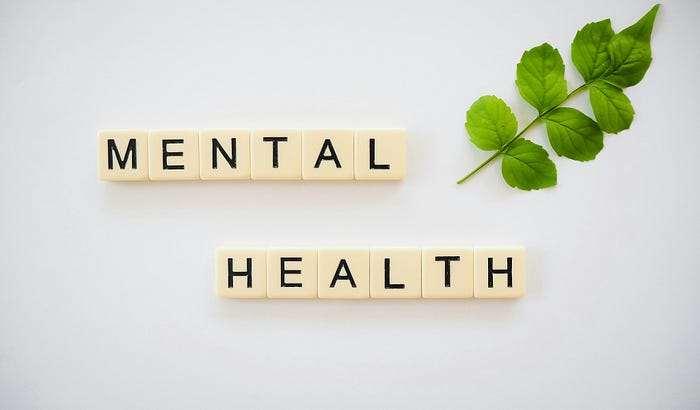
Holistic Wellness Magazine is reader supported. By purchasing through our links, we may earn a small commission at no extra cost to you.
Share Article
TABLE OF CONTENTS
- What is holistic health and what are its benefits?
- How to get started on a holistic wellness journey for yourself?
- The 5 Key Aspects Of Holistic Health
- What are some of the most popular holistic health and wellness practices out there today?
- Why do people choose to embrace holistic wellness in their lives instead of traditional medicine or other options?
- What are some of the potential risks associated with holistic health and wellness, and how can you mitigate them?
If you’re like me, you’re always looking for ways to improve your health and wellness.
Maybe you’ve tried a few different diets or exercise programs but haven’t found anything that works for you. If that’s the case, it might be time to consider holistic health and wellness.
Holistic health is all about treating the whole person, body, mind, and spirit, and there are plenty of benefits to be had.
Keep reading to learn more about holistic health and why it might be the right choice for you!
What is holistic health and what are its benefits?
Holistic health and wellness is an approach to health that takes into account the whole person — mind, body and spirit.
It recognizes that physical health is not just about the absence of disease but also about feeling good mentally and emotionally. Holistic health and wellness emphasize the importance of lifestyle choices such as diet, exercise, relaxation and stress management in achieving optimum health.

It also recognizes the role of complementary and alternative therapies in supporting health and wellbeing. By taking a holistic approach to health, we can achieve balance and harmony in our lives and improve our overall wellbeing.
How to get started on a holistic wellness journey for yourself?
Holistic health is all about taking care of yourself in a holistic way, which means looking at all aspects of your health and wellbeing. It’s not just about eating healthy food and exercising, but also about connecting with your inner self, managing stress levels, getting enough sleep and spending time in nature.
There are many ways to start your holistic health journey. The most important thing is to find what works for you and what makes you feel good. You might want to try out different holistic health practices and see which ones resonate with you. Maybe you’ll find that yoga or meditation helps you to relax and connect with yourself, or that eating whole foods makes you feel more energized.
Just make sure to listen to your body and do what feels right for you. Trust me, your holistic health journey will be worth it!
The 5 Key Aspects Of Holistic Health
Physical Health

When people think of holistic health, they often focus on the physical aspect. This makes sense, as physical health is the most obvious aspect of holistic health. After all, if we are not physically healthy, it can be difficult to focus on anything else.
Your physical health is essential to your overall well-being.
There are a few key practices that everyone can benefit from to support their physical health.
- First, maintaining a healthy diet is important. Eating nutritious foods provides your body with the energy and nutrients it needs to function properly.
- Second, getting regular exercise is important for physical health. Exercise helps to improve circulation, build muscle strength, and protect against conditions like obesity and heart disease.
- Third, getting adequate sleep is crucial for physical health. Sleep allows your body to repair itself and recharge for the next day.
- Finally, minimizing stress is also important for physical health. Stress can take a toll on your body, causing physical and mental health problems. By taking care of your physical health, you can improve your overall well-being and enjoy a better quality of life.
So, while physical health is important, it is only one piece of the puzzle!
To truly be holistic, we must take care of all aspects of our being. When we do this, we are more likely to achieve a state of balance and well-being.
Emotional Health

We all know that it’s important to take care of our physical health. We eat right, exercise, and see the doctor when we’re feeling under the weather. But what about our emotional health?
Too often, we overlook the importance of caring for our emotional selves. And yet, our emotional health is just as important as our physical health — especially because our emotional health can affect our physical health if it is not prioritized. When we’re stressed, anxious, or depressed, our bodies can suffer as a result.
That’s why it’s so important to make time for self-care and to do things that make us feel good. Whether it’s taking a relaxing bath, going for a walk in nature, or spending time with loved ones, find what works for you and make your emotional health a priority. Your body will thank you for it!
Mental Health

It’s important to take care of your mental health, just as you would your physical health. There are many things you can do to support your mental health.
Some ways to take care of your mental health include: eating a balanced diet, getting enough sleep, staying active, spending time with friends and family, doing things you enjoy, and managing stress.
It’s also important to know the difference between mental and emotional health. Mental health includes our thoughts, feelings, and behaviors. Emotional health is our ability to manage our emotions and deal with the challenges in our lives.
If you’re feeling like you need support, there are many resources available to help you. You can talk to your doctor, mental health professional, or a trusted friend or family member. You can also call a helpline or visit an online forum. Taking care of your mental health is important for living a happy and healthy life.
Social Health

It’s no secret that social health is important for our overall well-being. Deep connections with friends, family, and community help us feel supported, loved, and valued. They give us a sense of belonging and purpose.
Social health can have a profound impact on our physical health, too. Studies have shown that social isolation and loneliness can lead to poor sleep, high blood pressure, and weakened immunity. social interaction can help reduce stress levels, improve mental sharpness, and even lengthen lifespan.
In other words, social health is vital to our physical and emotional wellbeing. So let’s make an effort to stay connected to the people who matter most to us. It’s good for our bodies and our minds!
Spiritual Health

There are many ways you can support your spiritual health. One way is to find a community that shares your beliefs and values. If you are religious, this could be a church, synagogue, mosque, or any other type of religious or spiritual organization.
Another way to support your spiritual health is to connect with nature. Spend time in nature, and allow yourself to appreciate the beauty and mystery of the world around you.
However you choose to support your spiritual health, the important thing is that you find what works for you and what helps you to feel connected to something larger than yourself.
What are some of the most popular holistic health and wellness practices out there today?
There are many different holistic health practices out there, but some of the most popular include:
- Yoga
- Meditation
- Nutrition
- Personal training
- Functional Medicine
- Chiropractic
- Herbalism
- Aromatherapy
- Acupuncture
- Ayurveda

These practices can be used to help improve overall health and well-being by promoting relaxation, reducing stress, and improving circulation.
Many people who practice holistic health find that it helps them to achieve a sense of balance in their lives. In addition, holistic health practices can be used to complement more traditional forms of medicine. If you’re interested in exploring holistic health, there are many resources available online and in local communities.
Why do people choose to embrace holistic wellness in their lives instead of traditional medicine or other options?
Traditional medicine is the medical care and treatment provided by physicians who are trained and licensed to diagnose and treat diseases using surgery and drugs. Although both traditional and holistic health care approaches have their pros and cons, many people choose to embrace holistic health and wellness in their lives for several reasons.
Some believe that holistic health care is more preventative than traditional medicine, helping them to avoid disease and illness before it occurs. Others find that holistic health care is more natural and less invasive than traditional medical treatments, such as surgery or medication.

And for some, the focus on the mind-body-spirit connection in holistic health care is more appealing than the purely physical approach of traditional medicine. Whatever the reason, more and more people are choosing to integrate holistic health and wellness into their lives.
What are some of the potential risks associated with holistic health and wellness, and how can you mitigate them?
There are a few potential risks associated with holistic health and wellness that you should be aware of.
First, if you’re not used to eating healthy foods or exercising regularly, you may experience some detox symptoms like fatigue or headaches. This is perfectly normal and will pass as your body adjusts to its new routine.
Second, you may also find yourself feeling a bit overwhelmed at first as you try to incorporate all of the different aspects of holistic health into your life. Again, this is normal and simply means that you need to take things slowly at first. Just focus on one or two things at a time and build from there.
Finally, it’s important to remember that holistic health is not a quick fix; it’s a lifestyle change. So if you’re looking for immediate results, you may be disappointed. But if you’re willing to commit to the long haul, you’ll eventually see the benefits of holistic health in your overall well-being.




